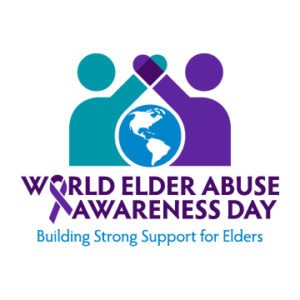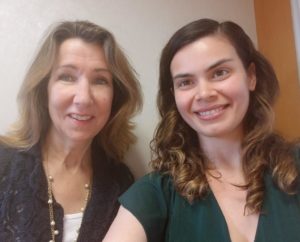You’ve Worked Hard for the Money — Now Protect It!
Reading Time: 2 MinutesLast Updated: August 19, 2021
 Most of us work hard to save and plan for our retirement. But there are people who work just as hard to take it away from us. Who are they? Phone scammers.
Most of us work hard to save and plan for our retirement. But there are people who work just as hard to take it away from us. Who are they? Phone scammers.
While I was working from home the other day, my phone rang three times. A robotic voice told me that I was in debt to the IRS and needed to pay immediately or I would go to jail. I knew it was a scam because the IRS will NOT contact me by phone; but, I wondered, if I were home alone and did not know these types of scams exist, would I be frightened enough to send money?
We must educate ourselves about the ways of scammers to protect ourselves and those we love. Phone scammers use several scams, such as the Grandparent Scam, the Computer Software Scam, and the very popular, “You’ve just won!” To handle these scam calls, do not pick up the phone. Let your answering machine take a message and then delete it. If you pick up, never send money. Instead, pause before doing anything. Then, call a loved one to get their opinion, check with your bank, or phone the IRS directly to check on your status. Unfortunately, many older Americans send money right away when this happens to them.
Also, please be aware that Medicare has begun to mail out new Medicare cards that no longer show your Social Security number. This is good news! It helps protect you. However, senior citizens may not know this. The bad news is that scammers are pretending to be from Medicare to get their private information.
World Elder Abuse Awareness Day, on June 15, aims to promote a better understanding of this type of abuse and neglect of older persons by raising awareness. Financial elder abuse can take many forms, from IRS and Lottery scams to theft of money by trusted people. However, financial is only one form of elder abuse happening daily. Other types include physical, emotional, and sexual abuse, as well as neglect.
The National Center on Elder Abuse (NCEA) is a resource center at the Keck School of Medicine at the University of Southern California. They provide resources to educate people about all types of elder abuse, including information and resources to help detect, intervene, and prevent abuse. Two fact sheets, Scammed? Now what… and The Grandparent Scam, provide scam information. Training resources on elder abuse are also available. Visit NCEA’s website to learn more about protecting yourself, your loved ones, and your community from elder abuse.
 Julie Schoen JD, brings her passion for all aspects of aging issues to her role as Deputy Director of the NCEA. She is an attorney with a strong background in Medicare advocacy who is now having impact in the area of elder abuse.
Julie Schoen JD, brings her passion for all aspects of aging issues to her role as Deputy Director of the NCEA. She is an attorney with a strong background in Medicare advocacy who is now having impact in the area of elder abuse.
Eden Ruiz-Lopez leads grant management, and engages in education and outreach activities at the NCEA, among many other activities. Her background includes a wide range of advocacy, case management and service coordination for older people and people with disabilities.
Did you find this Information helpful?
See Comments
About the Author
Comments
Comments are closed.

James L.
I received a call today that told me if I was over 65 i could get medicare 1 that would save me money. Then the caller told me all the agents were busy. That was after I had asked a few questions. she said they could call back, but i never heard back from them .
Is this a scam?
R.F.
SSA employees occasionally contact citizens by telephone for customer-service purposes. An SSA employees may call you in limited situations, such as if you recently filed a claim or have other Social Security business that are pending. In only a few limited special situations, usually already known to the citizen, an SSA employee may request the citizen to confirm personal information over the phone. If a person has questions about any communication—email, letter, text or phone call—that claims to be from SSA, please contact your local Social Security office, or call Social Security’s toll-free customer service number at 1-800-772-1213, 7 a.m. to 7 p.m., Monday through Friday, to verify its legitimacy (TTY number at 1-800-325-0778). Thanks!
MIKE
TELL ME THIS ISN’T TRUE.
Arnelle S.
How wonderful you are disseminating this information to all the social security readers. I work for the county and retrieve many, many calls on our fraud hot line. Some people are desperate and have given money to people “they do not know” — I have told them, NEVER EVER do that.
R.F.
Thank you, Arnelle! We’re pleased we can help. We appreciate your thoughts.
Marie D.
Thank you for posting these phone scammers so everybody is aware of them.
Lynn A.
On both my landline and my cell phone, I get at least 12-15 scam calls a day!!
Snarky
Dear Ass…
Stop answering your phone.
Arlene C.
I was almost a victum of the fb lottedy scheme. Once they kept pushing me for my personal banking info a light went o. Lol. I refused to comply.
Darwin S.
Thanks. For your support and help.
Thanks for let me know
Mario R.
Mandar mas informacion en español. gracias
R.F.
Hello Mario. For information in Spanish, please visit us at http://www.segurosocial.gov or http://www.facebook.com/segurosocial. For Social Security information in other languages, please visit us at http://www.socialsecurity.gov/multilanguage. Thanks!
Todd
I could use extra money I’m not making it then y’all shorted me 400 dollars this month I’m starving
Snarky
Damn those Y’all’s.
rob
Thank you for the information ,however, scams work because we need services as seniors. The irony is seniors needs more affordable legal protection most of all that is good and helpful.